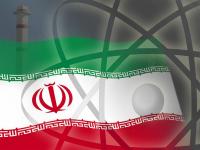The president's decision to nominate Gen. David Petraeus as the commander of US and NATO forces in Afghanistan won't mean a major change in strategy. But there are mounting reasons for pessimism about current policy, particularly the relentless focus on southern Afghanistan. The deployment of tens of thousands of additional troops to Kandahar and Helmand serves few NATO objectives.
Twelve of the Security Council's 15 members voted in favor of a fourth round of sanctions on Tuesday, but the new resolution reflected strong desires by China and Russia to avoid crippling the Islamic Republic's economy. Iranian President Mahmoud Ahmadinejad quickly dismissed the sanctions as a "used handkerchief" that should be thrown away.
It's going to be hard for Saad Hariri, whose moderate March 14 alliance came into power in Lebanon's parliamentary elections last summer, to assert himself during his first state visit to Washington this week. The White House and Congress are dominating the conversation with fears of Syrian arms transfers to Hizballah and a push to get Lebanon's support on U.S.-led efforts to approve sanctions over Iran's nuclear program.
During Afghan President Hamid Karzai's four-day visit to Washington, D.C. -- the first since his re-election last fall -- he and Obama administration officials managed to batten down the hatches and put on a well-choreographed show of unity. But will compromise on issues of serious disagreement follow all the diplomatic finery?
Iranian President Mahmoud Ahmadinejad, who delivered a pugnacious speech this morning, is the highest-ranking government official attending the United Nations review conference for the nuclear Non-Proliferation Treaty, which convened today in New York City and will continue throughout May. Observers don't expect any official action on Iran, with most just hoping the treaty will hold firm.
















